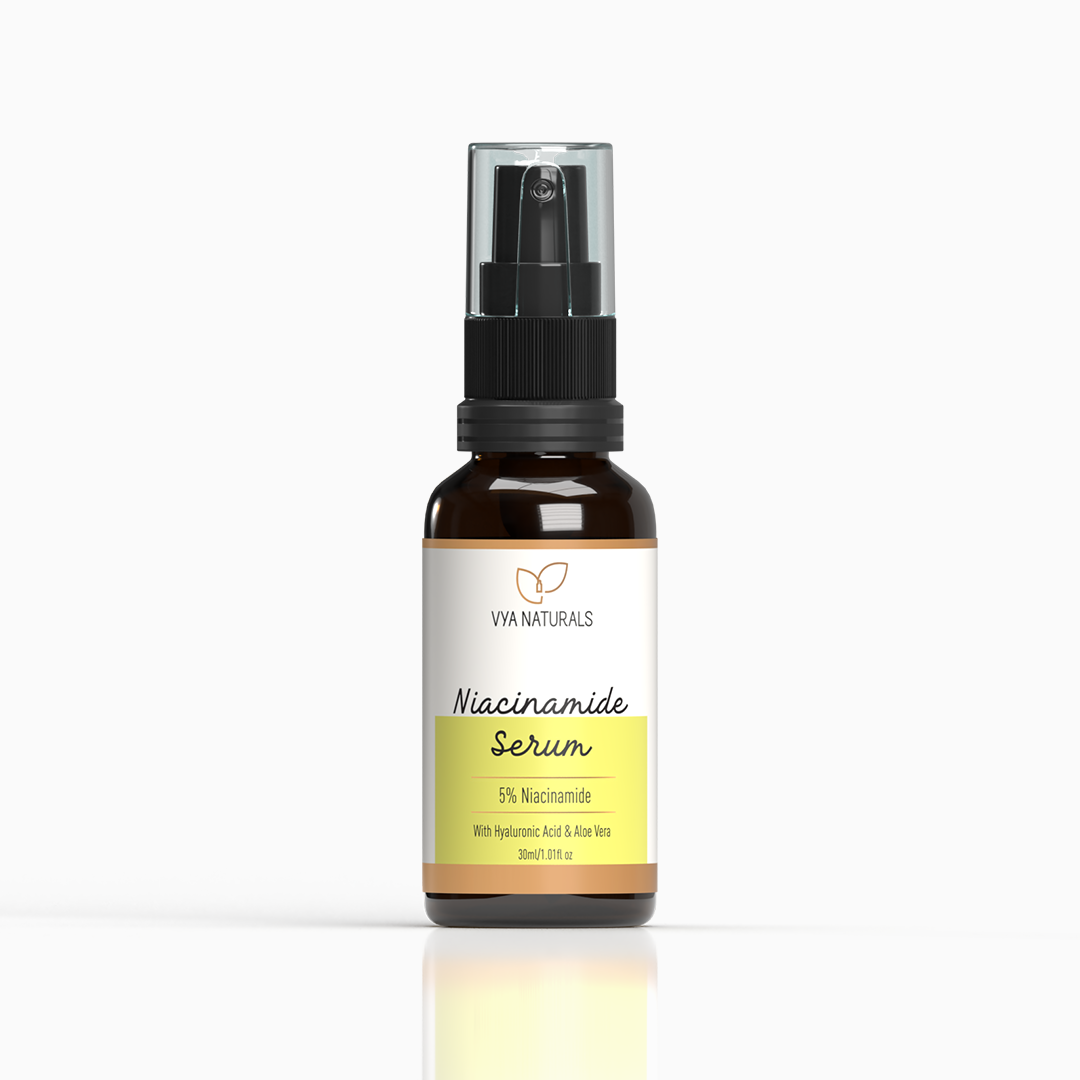WHAT IS A MOISTURISER?
Before we answer this question let’s refresh our understanding of what a moisturiser is.
Your favourite moisturiser is an emulsion (i.e. blend) of water, humectants (an ingredient that holds and retains moisture), emollients (an ingredient that softens and smooths the skin) and oils.
Moisturisers act as a barrier between your skin and the environment. They also add water to the skin and keep it moisturised.
WHAT IS A SERUM?
Let’s now dive into understanding serums.
Your serum is a skincare product with a more fluid, watery, gel or lotion like consistency. It is chock full of performance ingredients. These ingredients penetrate much deeper into the layers of the skin.
Serums can have a wide range of benefits. These benefits range from clearing blemishes, to firming, to fading brown spots and encouraging a more youthful complexion.
DO I REALLY NEED BOTH i.e. CAN I REPLACE MY MOISTURISER WITH A SERUM?
Serums and moisturisers play very different roles in your skincare.
Moisturisers are selected based on your skin type; serums are selected based on your skin concern.
If you are in your twenties and have flawless, problem free skin (and can we tell you how envious we are of you if that is indeed the case!) then you probably will not need a serum. Follow a good, consistent CTM (that’s cleansing, toning, moisturising) routine. Use the appropriate product for your skin type. Following these two steps is going to be just fine for you.
If you have skin concerns like pigmentation, redness, loss of tone, fine lines etc, a serum targeting these specific concerns will be a welcome addition to your skincare routine.
Serums do not typically replace your moisturiser. They can however significantly boost the hydrating effect of your moisturiser.
WHICH ONE IS MORE EFFECTIVE?
Aha - the million dollar question!
Moisturisers play a different role than do serums where your skincare is concerned. It’s like comparing apples to oranges if we try to make a choice between the efficacy of the two products.

Serums are more potent as they contain higher percentage of high performance ingredients.
They are more effective as they penetrate deeper into the layers of the skin. Therefore, serums are more effective in treating concerns.
If you are looking to address concerns like fine lines and pigmentation, you can use a Vitamin C Serum.
If you have dry, flaky skin, you can use a Hyaluronic Acid Serum.
You can try Niacinamide 5% Serum as it helps renew and restore the surface of skin against moisture loss by helping skin improve its natural production of skin-strengthening ceramides.
You can use Vya Naturals Vitamin B3 Serum (also known as Niacinamide 10% Serum) as it helps prevent breakouts and pimples.
Moisturisers, on the other hand, are heavier and hydrate only the top layer of the epidermis.
If you are looking to address a specific concern, serums will prove to be much more effective than a moisturiser.
Your moisturiser is probably quite satisfactory for you if you have flawless skin.
To achieve a smoother, toned and brighter-looking skin, you can use Vya Naturals Multi-Peptide Moisturizer for Collagen Boost.
However, with time and with the natural ageing process that we all go undergo, collagen levels drop. Your skin may start to show less tone and fine lines may start to appear. As a rule of thumb it is a great idea to proactively include a serum into your routine in your late 20’s or early 30’s.
DISCLAIMER:
Content of this website is not a substitution for professional medical advice, diagnosis, or treatment. We do NOT replace any relationship that exists, or should exist, between you and a medical doctor or other healthcare professional. Results given in testimonials/reviews are from real people who have used Vya Naturals products, but identical or similar results are not guaranteed. Individual results may vary depending on skin type, sensitivity, lifestyle, age, skincare products combinations, skincare history, as well as how the products are applied and stored.









